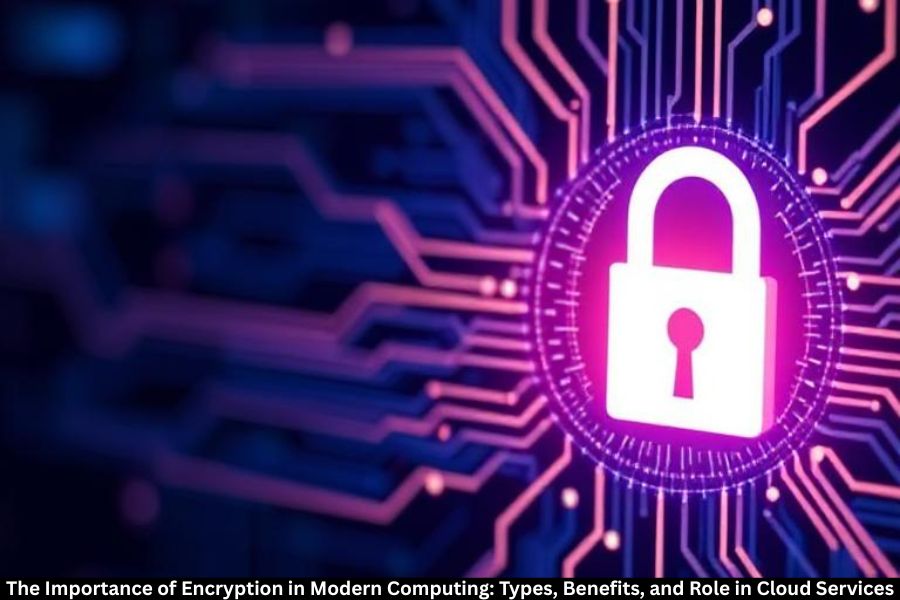Everything we do offline, including social and financial transactions, leaves a trail of personal data that is constantly flowing through the internet. Encryption is modern computing’s most critical aspect. Without encryption, personal information would be exposed to the dangers of hackers, identity theft, and cybercrime.
Why Encryption Matters For Modern Computing
If encryption did not exist, there would be no way of protecting sensitive data. Think of a safe for valuable items. If data is encrypted, in the event of a data breach, all a criminal would see is nonsensical text. This is one of the most effective ways of protecting data confidentiality and securing sensitive user data from modern threats.
Encryption can be imagined as sending a letter in a sealed letterbox — only someone with the letterbox key can access the letter.
What Is Cryptography and What Is Its Importance In Modern Communication?
Understanding Cryptography
Cryptography is the science that deals with protecting information by converting it to a code. It provides the fundamentals of encryption and covers the methods of securing messages, data, and digital communications.
The Role of Cryptography In Data Security
With the help of cryptography, messages and transactions can be kept private. Using WhatsApp, shopping, or logging into bank accounts are just a few of the countless day-to-day activities where cryptography protects the data from being captured by cyber criminals.
What is Data Encryption and Why Is It Important?
Data encryption involves changing readable (plain) text into an unreadable form called ciphertext. The encrypted data can be viewed only if it is decrypted with a key.
How Encryption Works
Whenever an email is sent, the data becomes unreadable. The receiver’s system then uses a key to make the data readable. This guarantees that the content is safeguarded from being read by any third party.
Real-Life Examples of Encryption
- Banking apps: Protect transactions and account details.
- Messaging apps: Use end-to-end encryption to keep conversations private.
- E-commerce sites: Protect credit card information from theft.
What Are The Advantages of Encryption?
Protect Data Privacy
Encryption enables you to send personal and sensitive data without fear of it being leaked.
Guarantees Data Accuracy
Prevents unauthorized modification of data, allowing the data to stay as originally sent.
Earns Customer Confidence
Encryption’s use by a company signals to the customers that the data security measures are taken quite seriously.
Aids In Meeting Compliance Standards
Encrypting data is mandated for sensitive data by GDPR, HIPAA, and other such laws.
What Are The Types Of Encryption?
Symmetric Encryption
It’s the only type that uses a single key, which makes access faster but poses a challenge in secure key transfer.
Asymmetric Encryption
Widely used for online transactions, it uses two keys, one for encryption (public key) and the other for decryption (private key).
Hashing
It is used as a one-way encryption method to verify data, for example, with passwords.
End-to-End Encryption
Used in messaging apps, encrypts a message such that only the sender and receiver can decrypt it.
Encryption in Cloud Computing
Services for cloud storage such as Dropbox and Google Drive protect your files using encryption. Storing sensitive data in the cloud would be highly dangerous without encryption.
Encryption in Network Security
As data travels across different networks, encryption is necessary to protect the data from being viewed by unauthorized parties. A good example of the use of encryption is in VPNs.
Encryption in Online Transactions
Encryption protects your details when you pay for a product or service online. This guarantees the security of your payment and supports safe online shopping.
Encryption and Cybersecurity Trends
Given the increasing number of cyberattacks, encryption is changing. The future is being shaped by zero-trust security models and quantum encryption.
Challenges of Encryption in Modern Computing
- Complex encryption requires high computation costs.
- Encryption keys are hard to manage.
- If implemented incorrectly, encryption can be vulnerable to attacks.
What Is SaaS Vs PaaS Vs IaaS?
Each of the three cloud computing services require encryption to guarantee security.
SaaS (Software as a Service)
Software available on the internet (e.g., Gmail, Zoom). User data in SaaS apps is protected with encryption.
PaaS (Platform As A Service)
Offers development of applications using various service tools and infrastructures (e.g., AWS Elastic Beanstalk). Encryption protects the development environments.
IaaS (Infrastructure As a Service)
Offers cloud servers and networking services (e.g., AWS, Azure). Encryption protects the virtual machines and storage.
How Encryption Works in Cloud Services
Irrespective of the service model, encryption protects data both at rest and in transit.
The Future of Encryption Technology
Quantum encryption, which may offer unbreakable security, is one of the promising technologies in the encryption field. Encryption, as a technology, will eternally transform to face the challenges offered by advanced persistent threats.
Best Practices for Using Encryption
- Use strong encryption algorithms.
- Update encryption keys on a regular basis.
- Encrypt all devices and applications.
- Use VPNs for safe app and web browsing.
- Provide encryption awareness training.
Summing Up
An increasing number of people struggle to understand encryption and tend to ignore its importance in cybersecurity. Unfortunately, sufficient encryption lessens the risk of cyber-attacks. Failing to apply adequate encryption increases the likelihood of cyberattacks, which very few business owners are prepared for.
FAQs
Why is Encryption Important in Computing?
It helps to safeguard sensitive information from malicious attackers and unauthorized users.
What is Cryptography and Why is it Important in Modern Communications?
Cryptography is the field of securing information where it provides privacy and assurance in communications.
What is Data Encryption and Its Importance?
It makes data unreadable using certain methods such that only permitted users have access to it, thus providing confidentiality.
What are the Benefits of Encryption?
Encryption ensures privacy protection and data integrity while helping to meet security-related laws.
What are the Types of Encryption?
The major types are symmetric, asymmetric, hashing, and end-to-end encryption.

